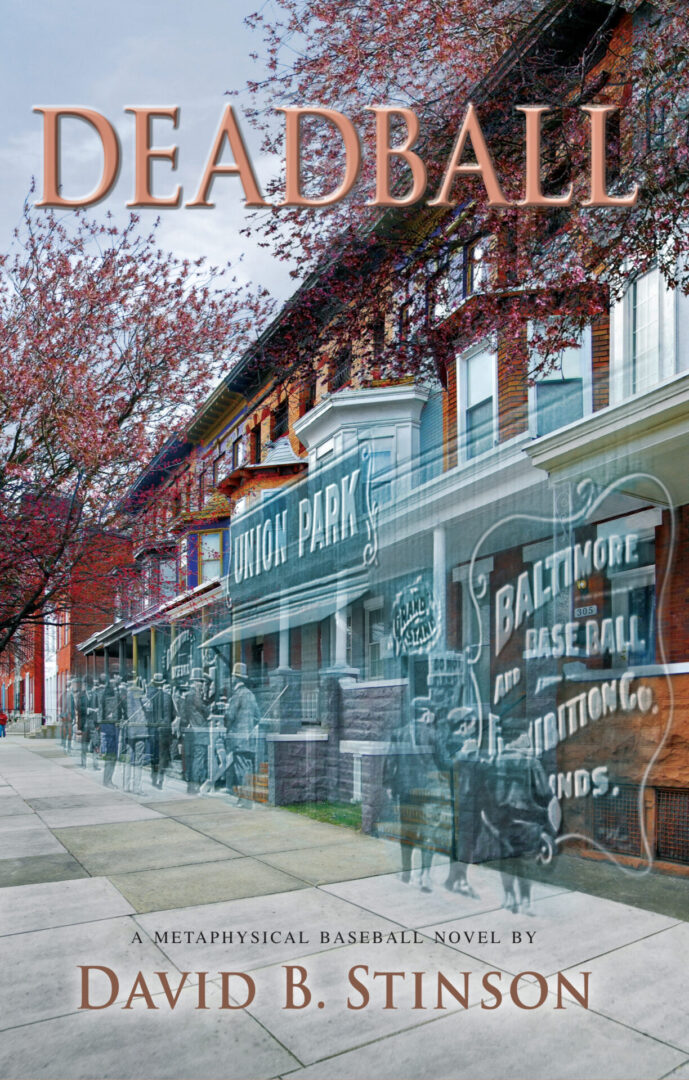Silver Stadium was located at 500 Norton Street in Rochester, New York. The ballpark opened in 1929 as Red Wing Stadium, and was home to the International League Rochester Red Wings. The Red Wings were then an affiliate of the St. Louis Cardinals, who also constructed and owned the ballpark.
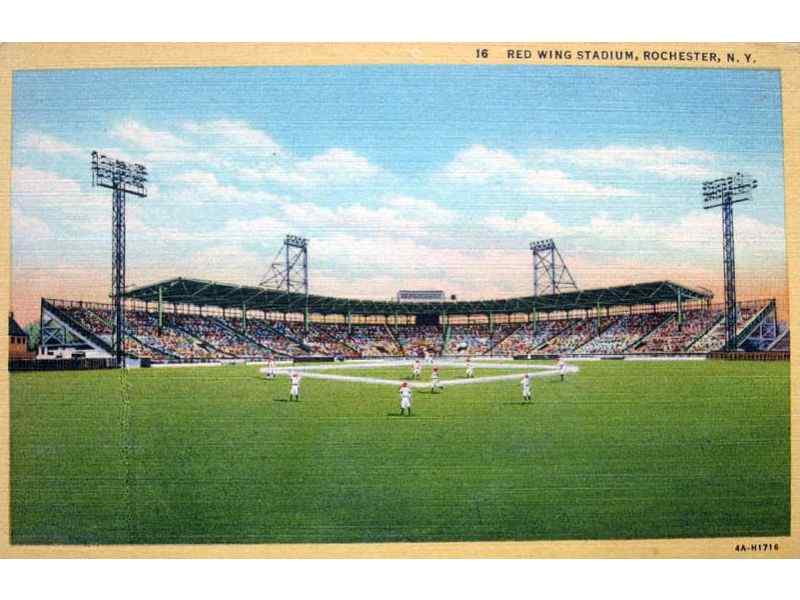
The ballpark is notable also as the home field for the Negro National League New York Black Yankees in 1948, and the American Football League Rochester Braves in 1936, and the American League Rochester Tigers in 1936 and 1937.
The main entrance to the stadium was through a gate behind the first base grand stand. Next to that gate was a two story house that served as both a ticket booth and administrative offices for the team. The two-story building is somewhat reminiscent of similar buildings at League Park in Cleveland and Braves Field in Boston.
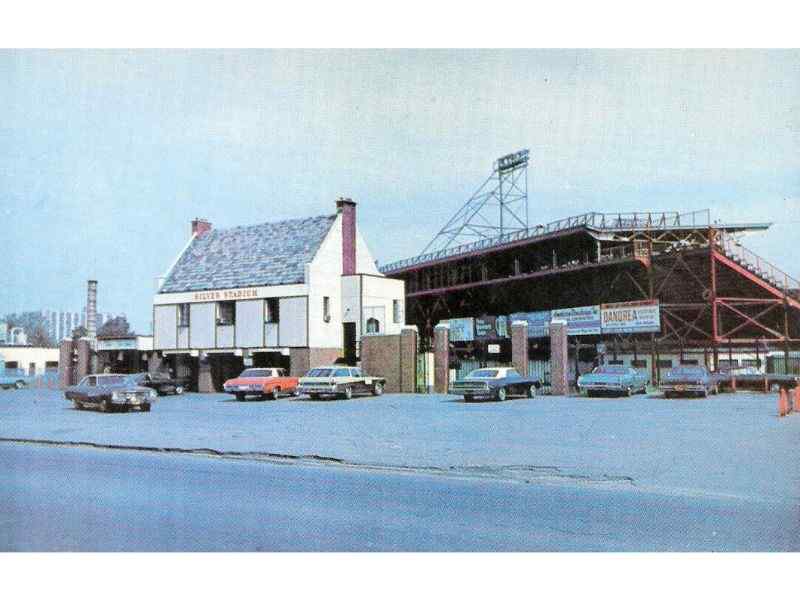
The house at 500 Norton Street remains at the site today and now is occupied by one of the city’s four Neighborhood Service Centers.
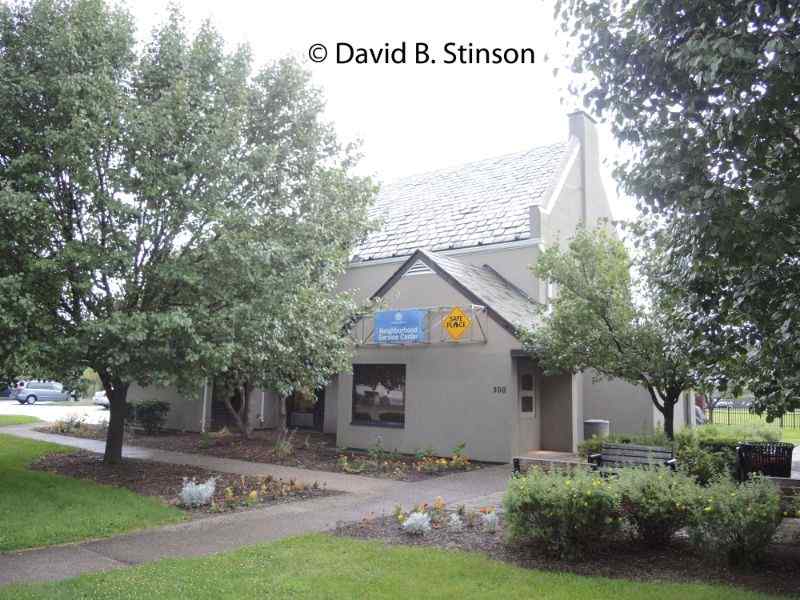
Behind the building at 500 Norton Street is a one story structure that was added to the site after the ballpark’s demolition.
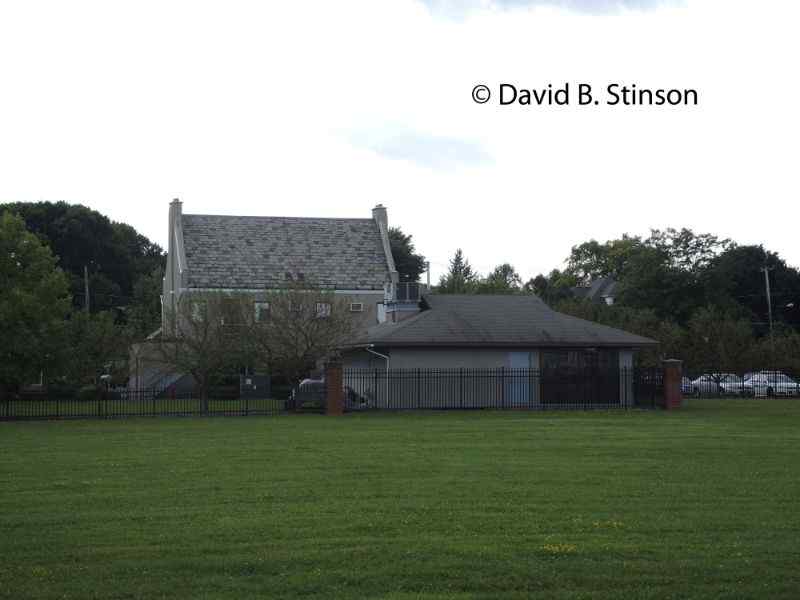
On the eastern side of the building at 500 Norton Street are three plaques honoring the history of the ballpark.
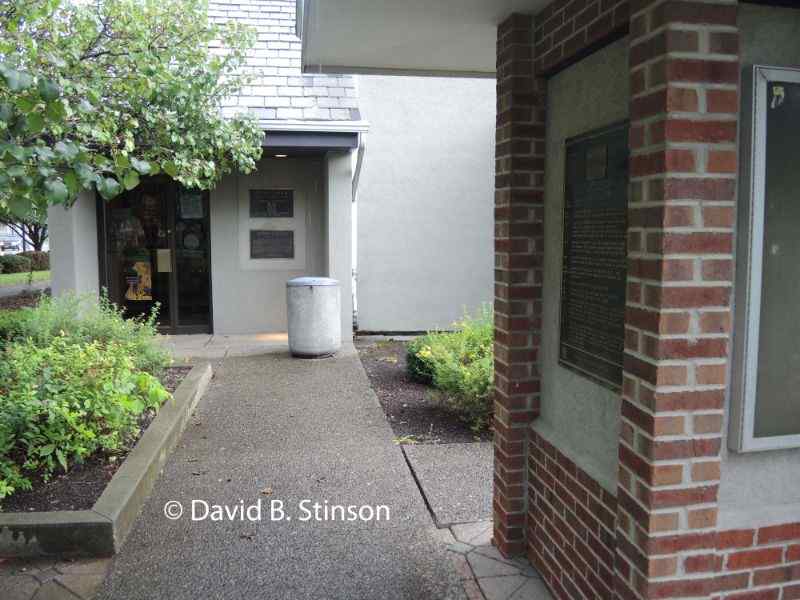
The first plaque details what the land there was used for prior to construction of the ballpark, as well as significant milestones in the ballpark’s history.
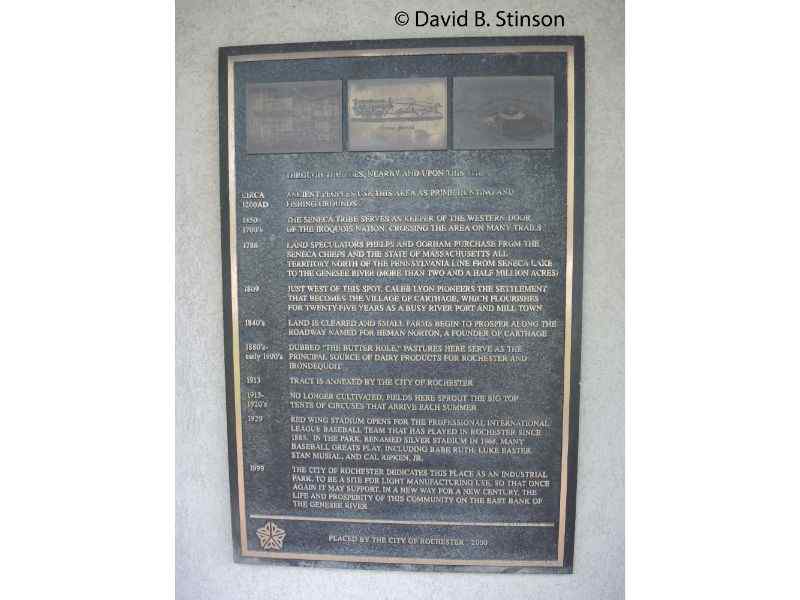
In 1956, local Rochester businessman Morrie Silver helped purchase the team and it’s stadium from the St. Louis Cardinals, thus ensuring that the Red Wings would remain in Rochester should the Cardinals decide to relocate to another town. It is for this reason that Mr. Silver is credited with saving professional baseball for the City of Rochester.
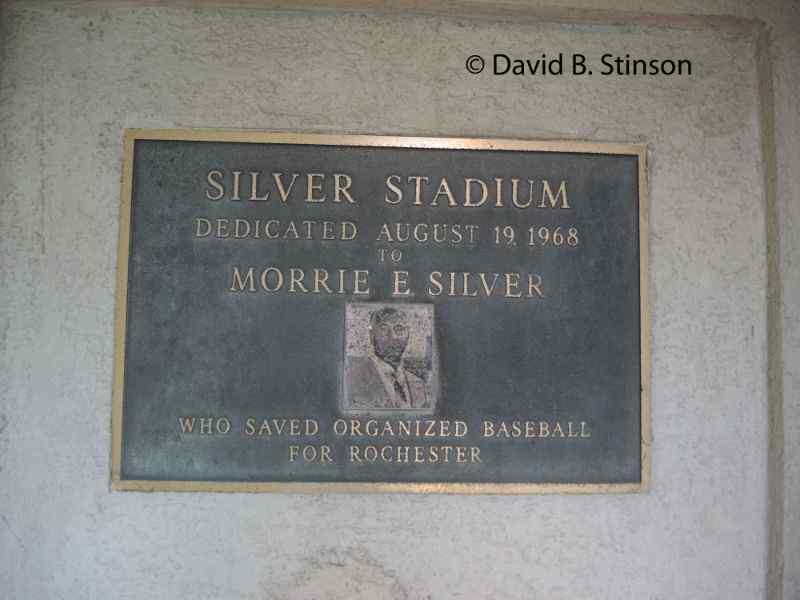
In 1960 the St. Louis Cardinals departed Rochester and the Baltimore Orioles became affiliated with the International League Red Wings. In 1968 Red Wing Stadium was renamed Silver Stadium in honor of the team’s owner. After Mr. Silver’s death in 1974, his widow Anna Silver remained with the team as a Member of the Board of Directors from 1975 to 1990, and as Chairperson of Board from 1981-1990. The Silver’s daughter Naomi Silver currently serves as President and Chief Executive Officer of the Red Wings.
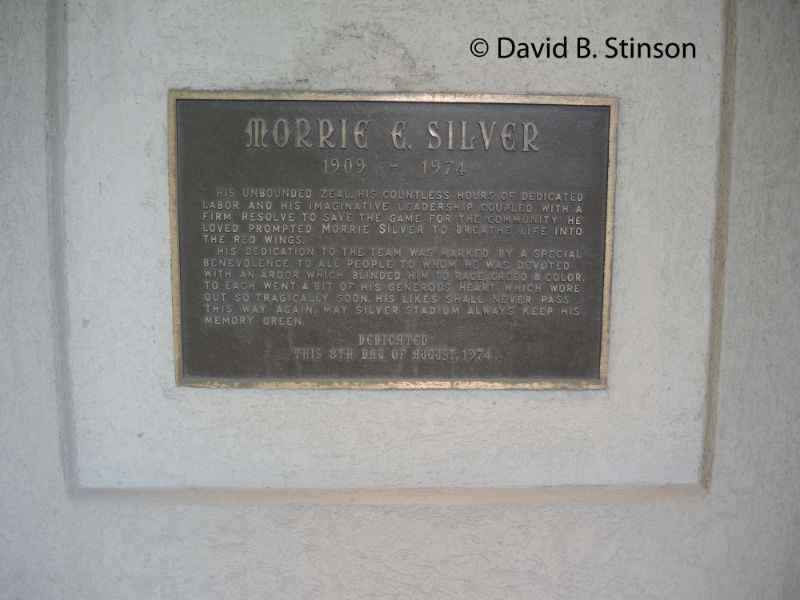
Silver Stadium’s home plate was located directly north of the two story house that served as the ballpark’s main entrance.
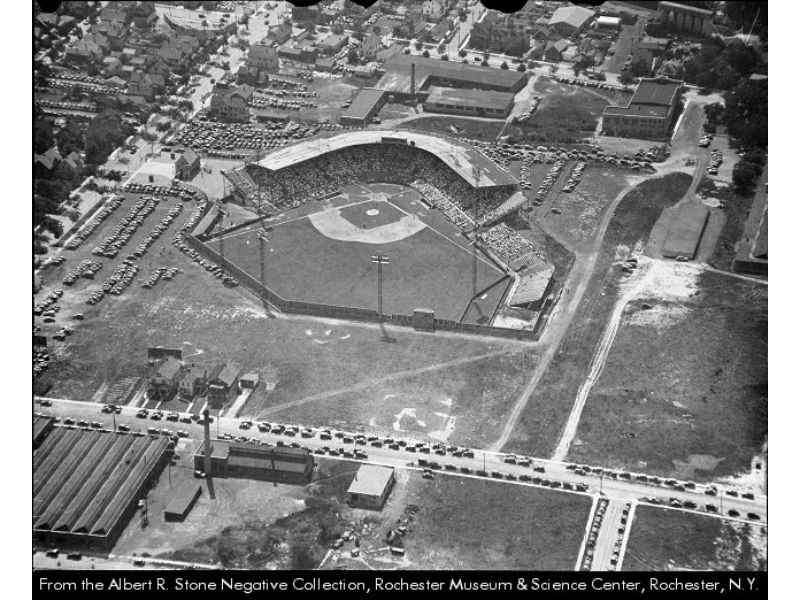
What appears to be the outline of Silver Stadium’s first and third base foul lines still can be seen in the Google Maps Satellite View of the former Silver Stadium Site (you will need to zoom in on the site).
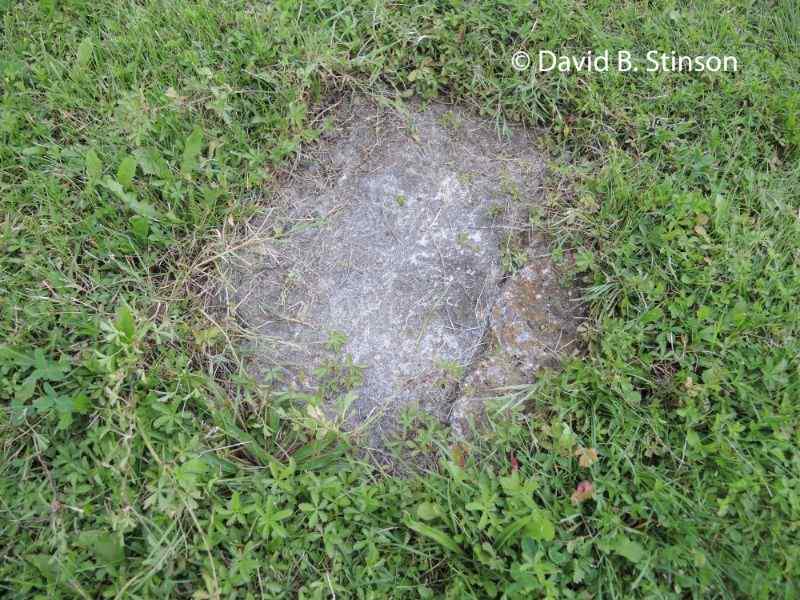
The ballpark faced east, with the first base foul line running diagonally toward Norton Street.
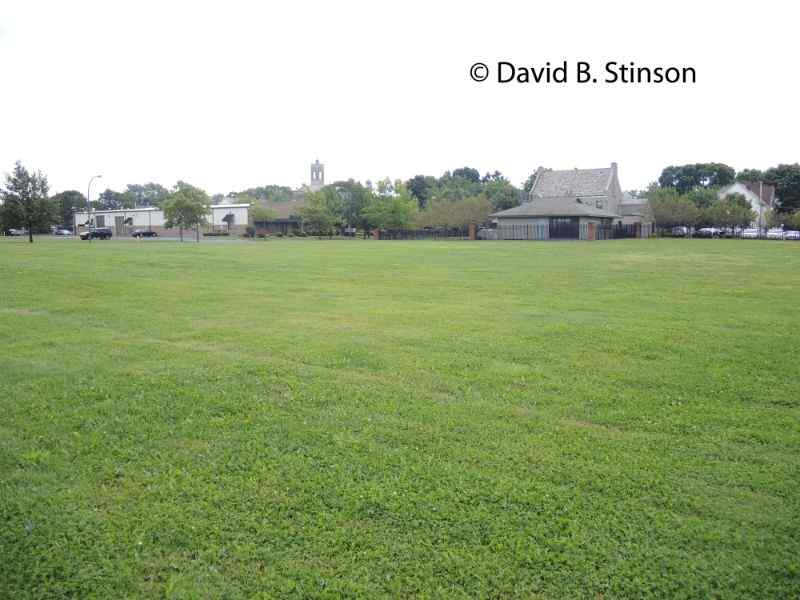
Silver Stadium was a single-deck ballpark with a roof covering the grandstand from first base around to third base. Uncovered bleachers extended along the foul lines toward right field with a smaller uncovered section near left field.
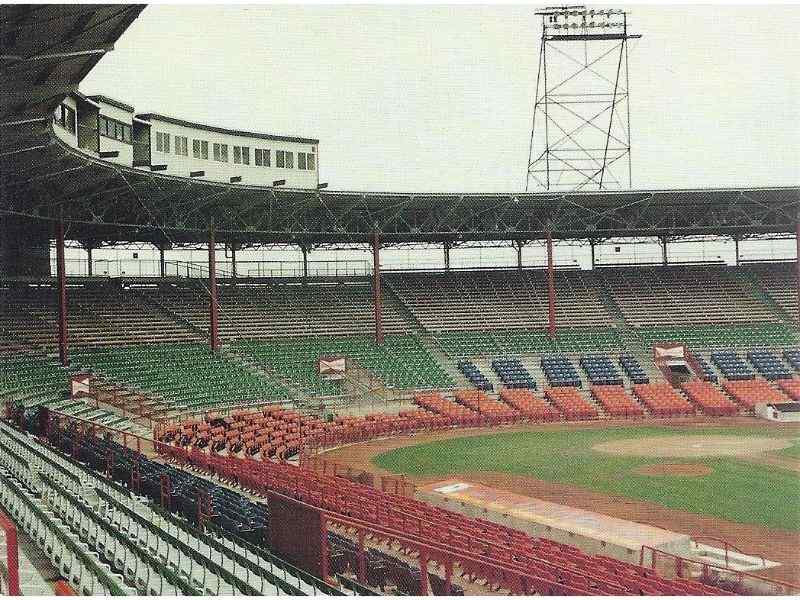
The third base foul line ran diagonally toward Bastion Street.
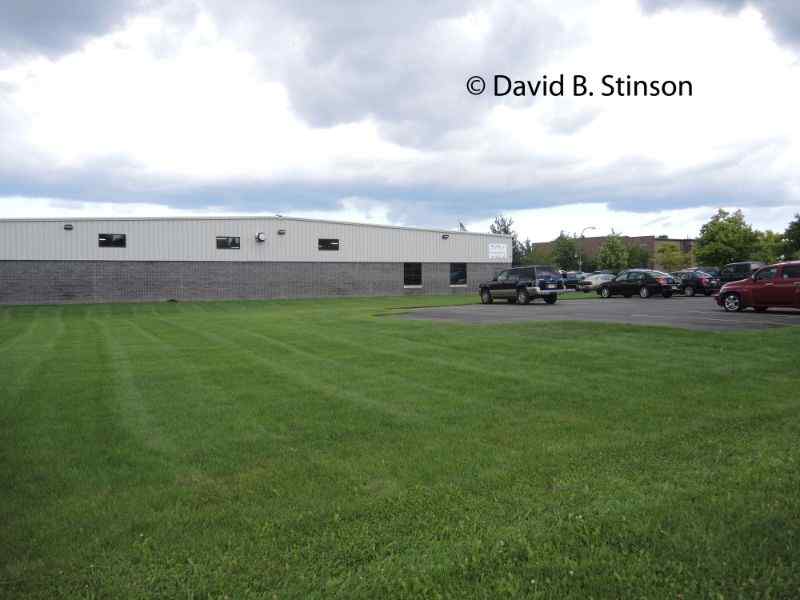
Silver Stadium closed after the 1996 season and the following year the ballpark was demolished. In its place the city constructed 14621 Industrial Park (the reference to 14621 is the area’s zip code).
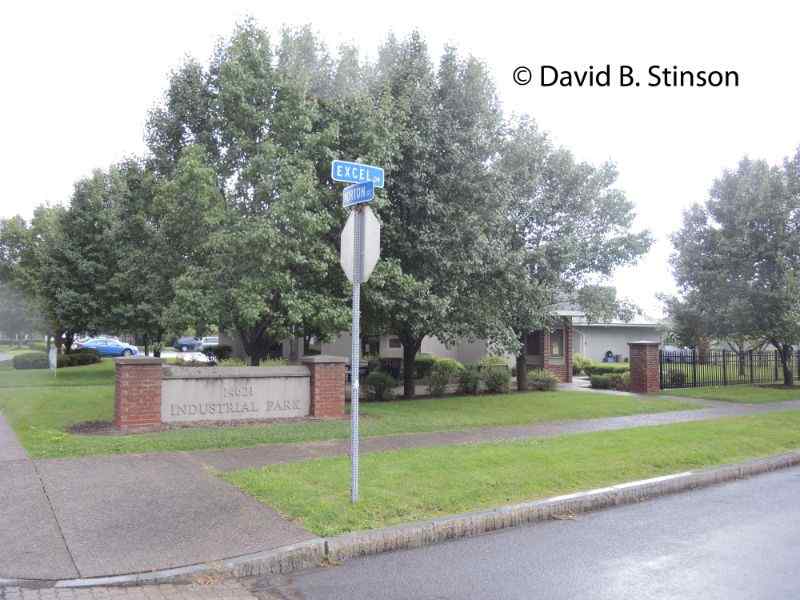
Center field was located due east of home plate. Two single story warehouse buildings now sit just beyond what used to be the center field fence. The entire area that once encompassed center field remains an open field.
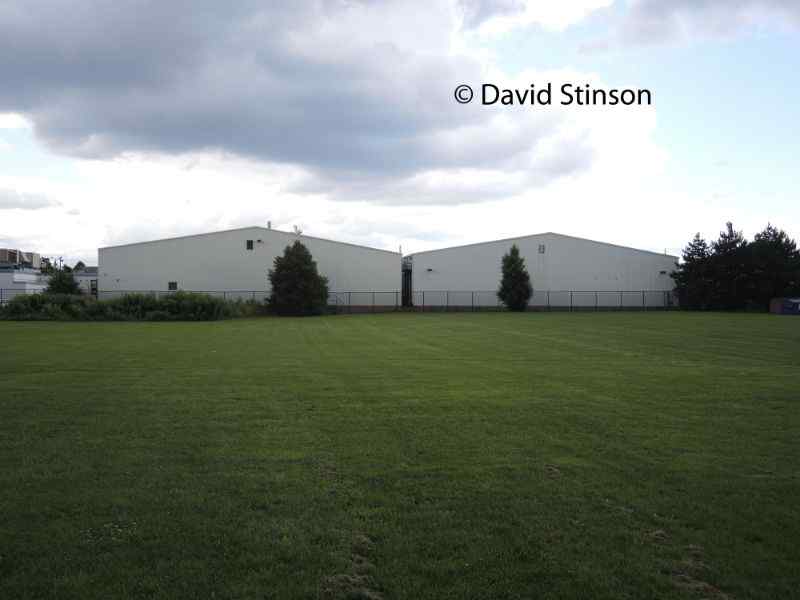
After the ballpark’s demolition, the city added a new street, Excel Drive, which runs north and south through the center of the former ballpark site.
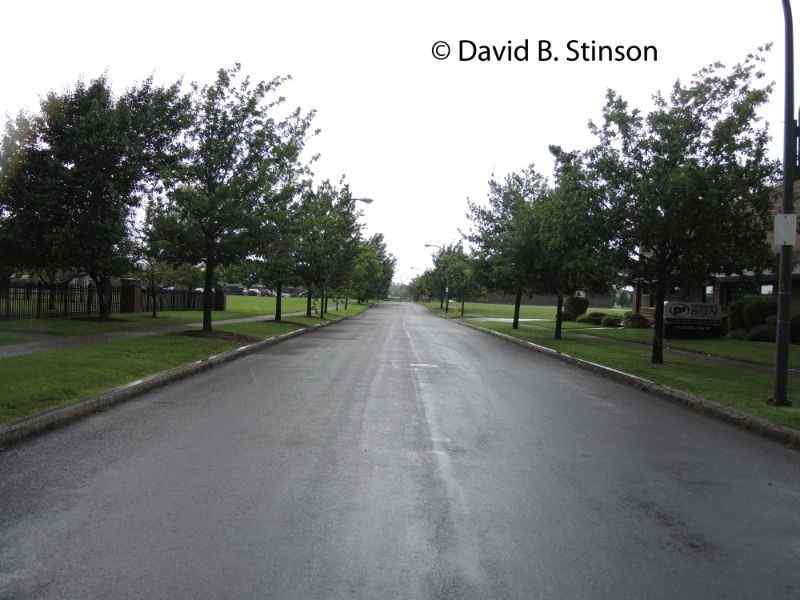
Where once sat the third base grandstand is now a one-story industrial building at 85 Excel Drive, currently housing SPEX Precision Machine Technologies.
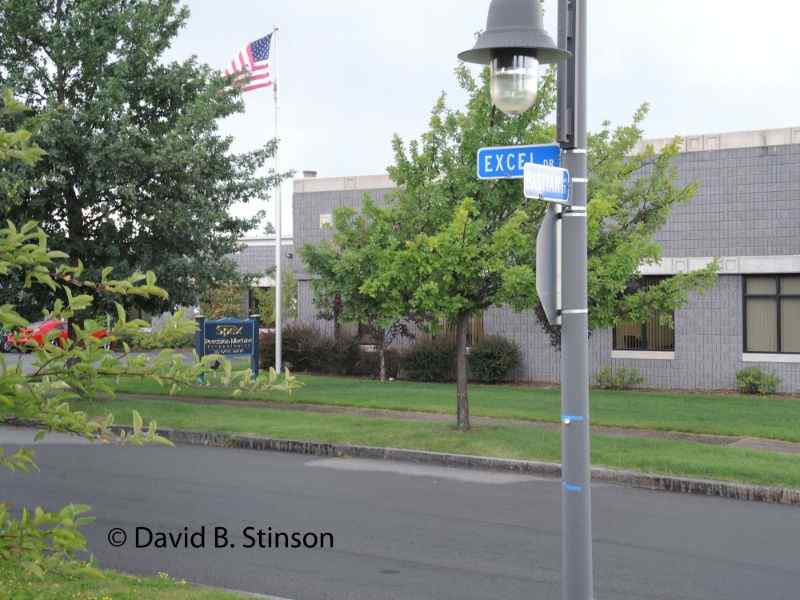
In what was once the right field corner and the right field bleachers sits a large warehouse at 10 Excel Drive. Just beyond the warehouse, across Norton Street, is Our Lady of Perpetual Help, whose steeple was readily visible beyond the right field bleachers back during the time of Silver Stadium.
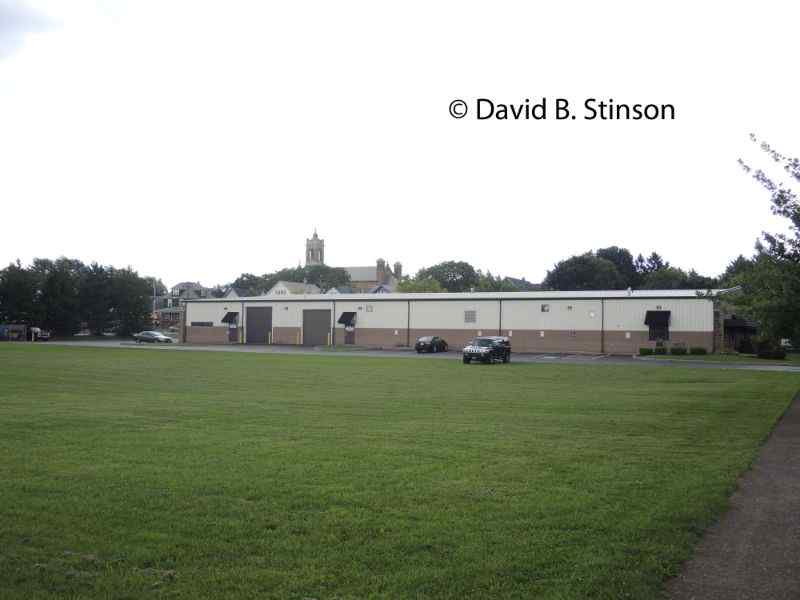
The building at 10 Excel Drive currently houses Premier Sign Systems. Its parking lot sits atop the right field corner.
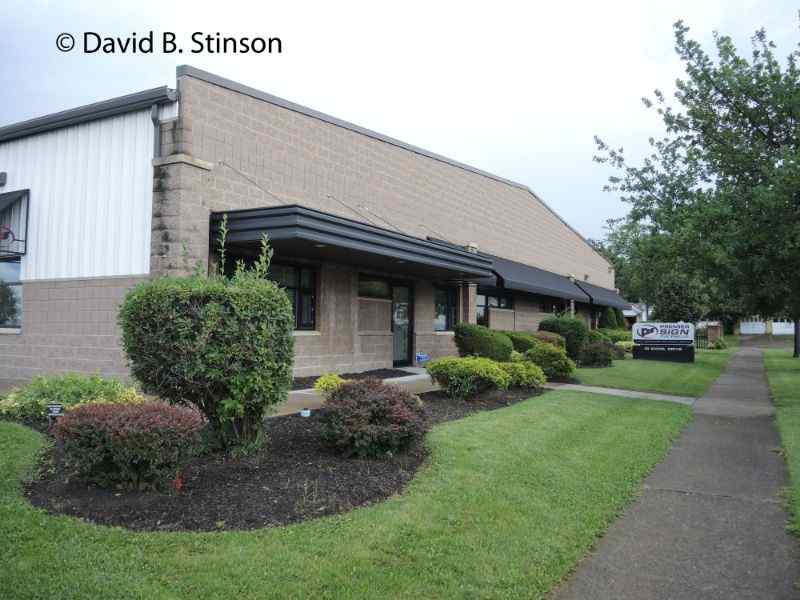
In what was once left field also sits a large one-story industrial building and parking lot.
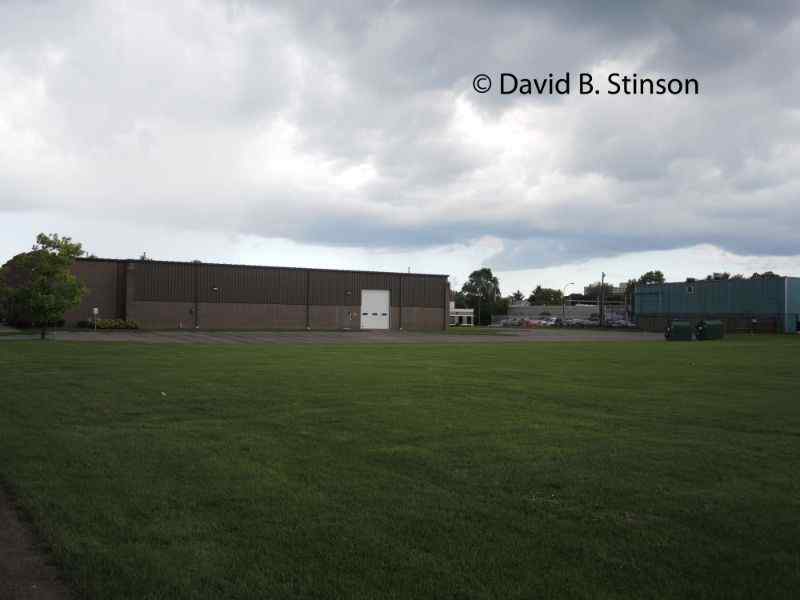
That building, located at 80 Excel Drive, currently houses Macauto USA Corp.
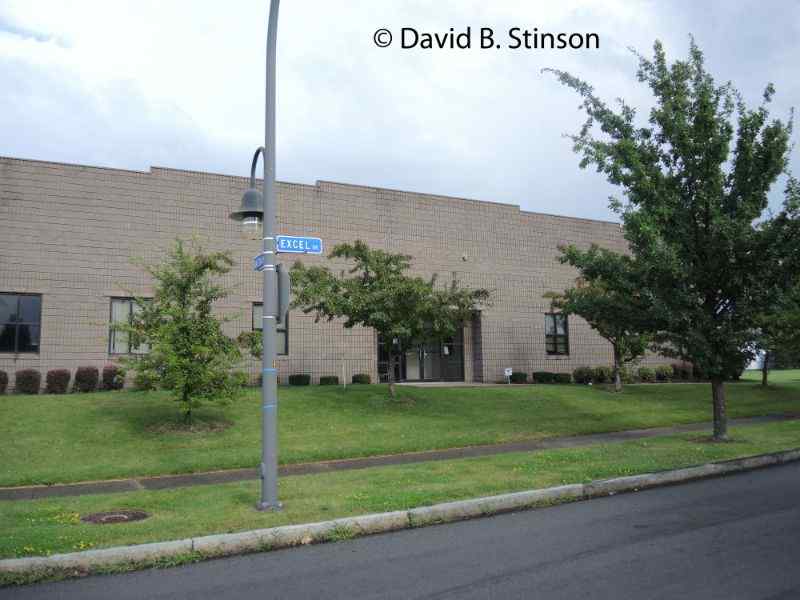
Second base and beginning of the outfield is marked by Excel Drive.
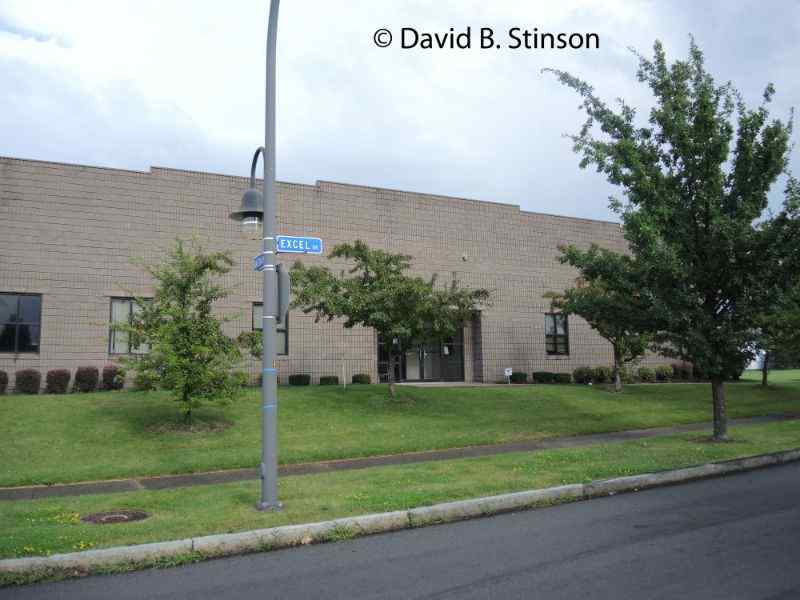
Many of the houses that sat along the perimeter of Silver Stadium remain to this day.
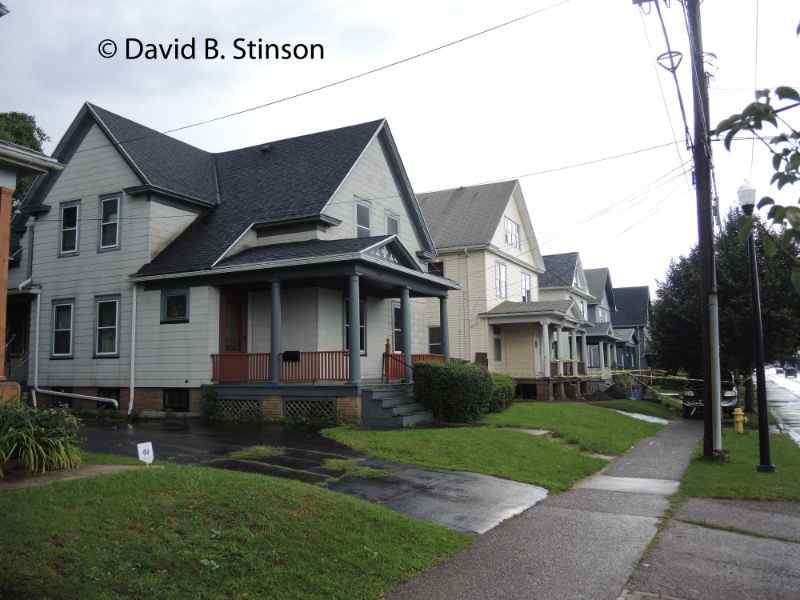
In addition, several of the industrial buildings that sat beyond the home plate grandstand remain at the site.
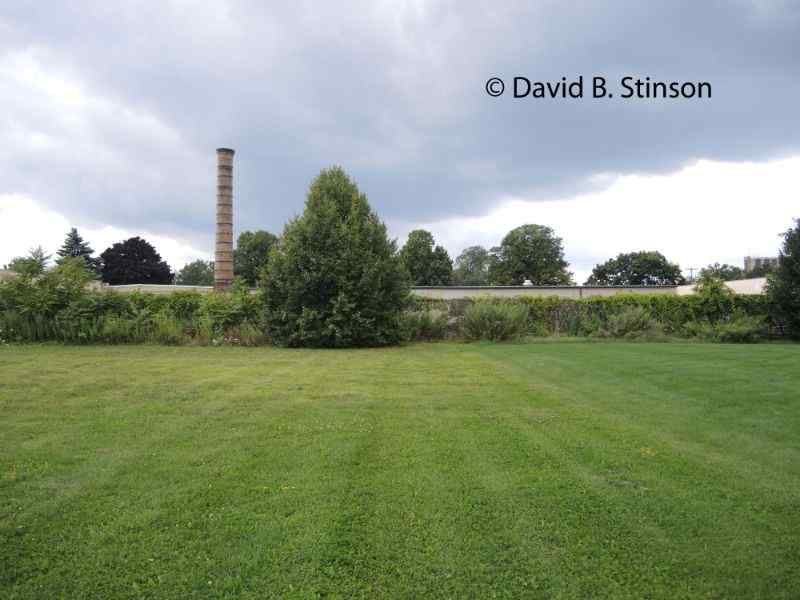
The former school building at 1550 N Clinton Street, which sat behind the first base grandstand, remains as well, and now houses a ministry.
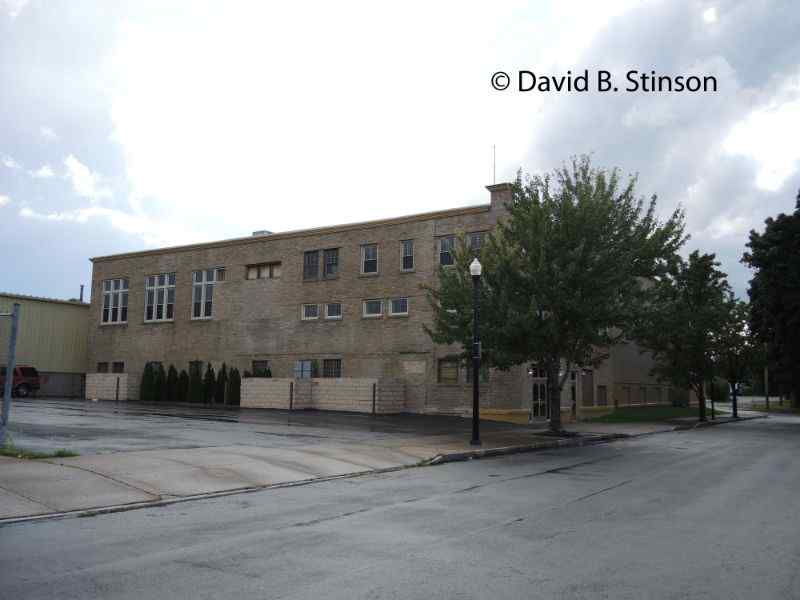
In 1997, the Red Wings moved three miles south of Silver Stadium to a new state-of-the-art minor league facility located at 333 N. Plymouth Avenue.In 1997, the Red Wings moved three miles south of Silver Stadium to a new state-of-the-art minor league facility located at 333 N. Plymouth Avenue.
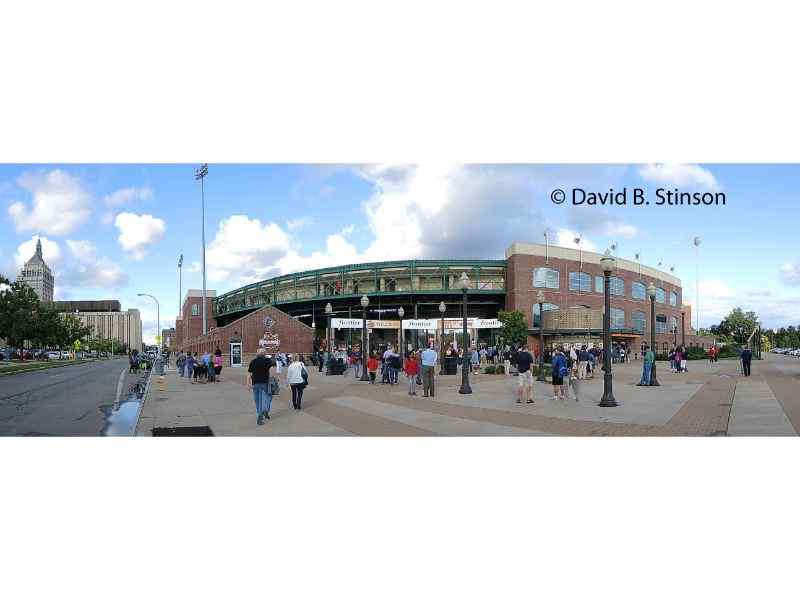
Frontier Field remains one of the finest ballparks in minor league baseball. When comparing Silver Stadium to Frontier Field it is easy to appreciate the team’s decision to construct a new ballpark in the heart of downtown Rochester.
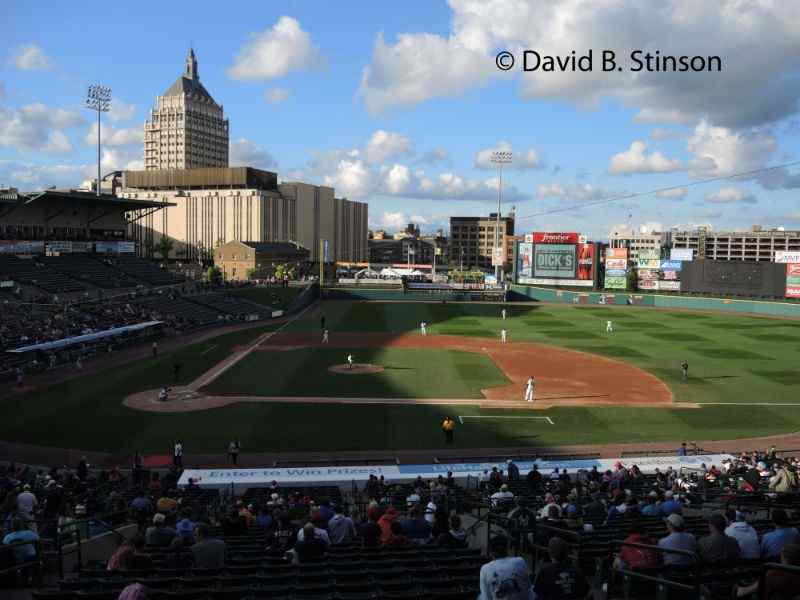
Frontier Field pays homage to Morrie Silver with a statue outside the ballpark’s front gates.
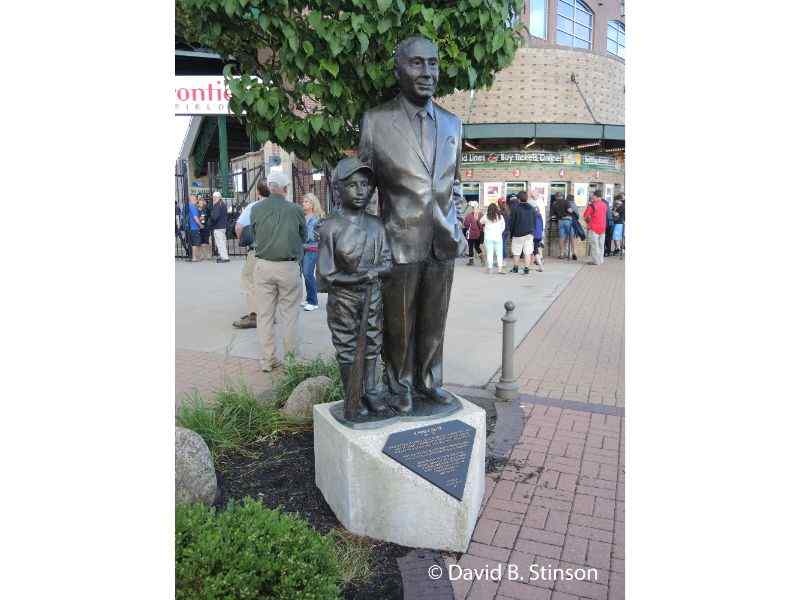
The plaque at Mr. Silver’s feet states, in part: “The man who saved baseball for Rochester in 1957. Spearheading a stock drive, he and 8,221 others bought shares in the team in order to purchase the franchise and the stadium from the St. Louis Cardinals.”
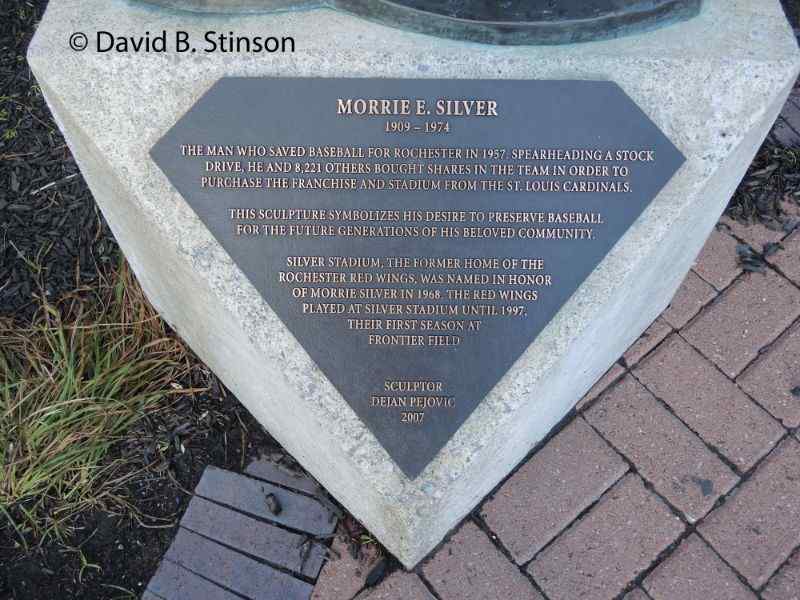
Although Silver Stadium is now a lost ballpark, much of the outfield and many of the buildings surrounding the stadium site remain as they were were back when baseball was played at 500 Norton Avenue.
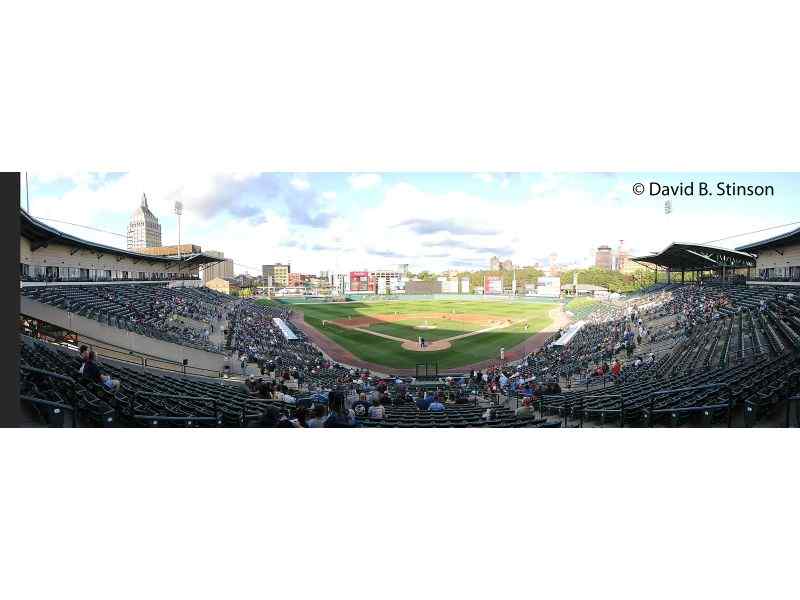
If you live in Rochester and attend Red Wing games, a pilgrimage just three miles south of Frontier Field to the former site of Silver Stadium is a must. The City of Rochester should place a marker indicating where home plate once sat. Given the information above, it should not be difficult to locate the exact spot.
Many great ballplayers and managers made the ballpark their home, including Rochester Hall of Famers and Baseball Hall of Famers Cal Ripken, Jr., Red Schoendienst,Earl Weaver, and Johnny Mize. Who knows? Given how much of the field remains unencumbered, a baseball game very well could break out on that field at any time, helping to bring back to that area a game that was played there for over 60 years.
